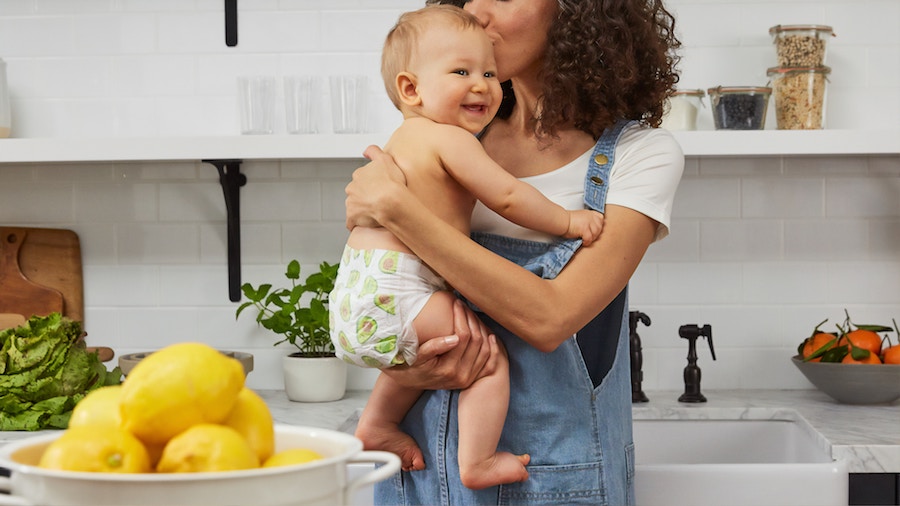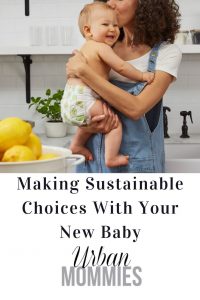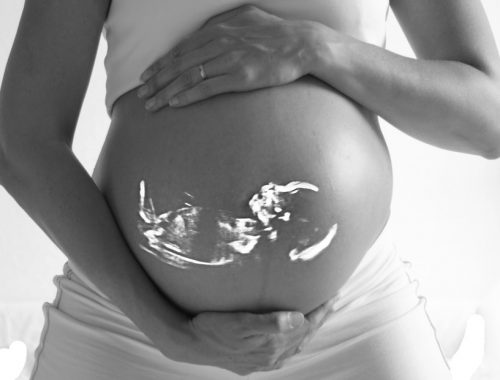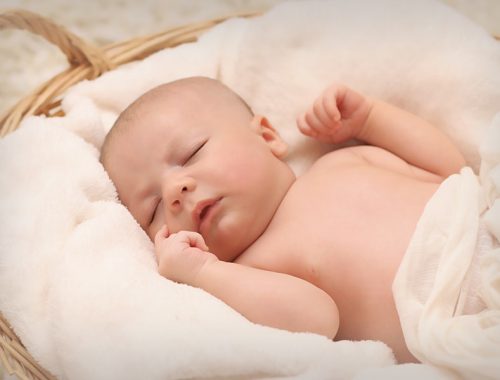A new baby brings joy, love and lots of other goodies, including a whole new category of things to buy. Things start to accumulate when you consider furniture, toys and baby-related equipment. In truth, your baby has few needs besides their crib, bedding, diapers, baby food and clothing. There are lots of options in the marketplace that are not only sustainable and socially responsible choices, but probably better for your baby as well.
Sustainable Choices For Your New Baby
Baby’s room
When getting baby’s room ready for your arrival from the hospital, choose non-toxic, baby-friendly paint. Cribs, change tables and other baby-related furniture should be durable and high quality pieces made from sustainable, low-toxicity materials. Set up the baby’s room early so any suspicious equipment can off-gas before the baby’s arrival, preferably outside! As long as you ensure that the second hand furniture (Freecycle, Craigslist, UsedCanadaNetwork) you may be considering meets all of the most recent health and safety regulations, buying furniture second hand is a good option. *
* Research has shown that buying new car seats and mattresses are the best policy – studies show that car seats may have sustained invisible damage and second hand mattresses have been linked to SIDS
The Great Diaper Debate
There is a division on the studies regarding cloth and disposable diapers. Estimates for the number of diapers used between birth and toilet training range in the 6,000s, and knowing that disposable diapers take in the neighbourhood of 400 years to decompose, this is certainly an important decision. Washing diapers requires time, energy, chemicals and water, but it saves money and studies have shown that it uses less than half of the ecological footprint of disposables.
You could consider biodegradable diapers that are made with plant-based plastics which still take a long time to break down in landfills but can be composted in an active and properly conditioned composting area. Cloth diapers, made from eco-friendly materials such as bamboo, hemp or organic cotton, are more user-friendly than ever with easy snap or Velcro closures. You can get removable or flushable liners.
You’ll notice the laundry piling up with a new baby, so choose a non-toxic detergent made for babies skin and wash at lower temperatures.
Breastfeeding
Breastfeeding has multiple benefits for both mum and baby, has no environmental impact and is the most economical choice. Choose organic cotton or wool-felt pads for nursing pads, and if you need a treatment for sore nipples, consider olive oil or organic lanolin.
If you choose not to breastfeed, you can find organic and fair-trade infant formula but if price or availability is an issue, try to find a product that is socially responsible according to The World Health Organisation.
Clothes
Baby clothes are an important consideration. With underdeveloped sweat glands, it is difficult for babies to maintain their own body temperature so they always need to be dressed well. Babies outgrow their clothes very quickly so they don’t need an entire designer wardrobe. You want the best option for what is next to their sensitive skin, so choose natural materials such as organic hemp, silk, cotton, bamboo or wool fabrics that can sustain frequent washing. Accept hand-me downs too!
Food
At around six months your baby is ready to start eating solid foods. Jarred baby food is extremely convenient and you can find several organic options in your local store or community. Making your own baby food is easy, cheaper and generates less waste. It’s a very sustainable feeding choice.
Skin Care
Synthetic products remove natural oils in your baby’s skin, which is very delicate and open. Natural ingredients such as plant extracts and oils nourish and protect the skin; created by nature they are compatible with our bodies. The best baby skin care product is olive oil! It’s inexpensive, natural and unscented. There are lots of other organic choices out there, so avoid the hype and choose the most uncomplicated skin care for your baby.
Toys
Because babies put most things in their mouths, choose organic cotton or wooden toys that have not been treated with synthetic chemicals. Make sure you know the provenience of the toy and check manufacturers’ recall lists.
Cleaning
It’s a common misconception that natural cleaning products aren’t as effective as commercial ones. Make your own non-toxic, natural and biodegradable cleansers with simple household ingredients such as vinegar, baking soda and lemon juice. It’s easy, cheap, safe, and will improve your indoor air quality.
What sustainable choices will you make for your baby?





[…] curious crawlers. They have the added benefit of being totally benign, since they clean with steam, not toxic cleaning products and leave no residue […]